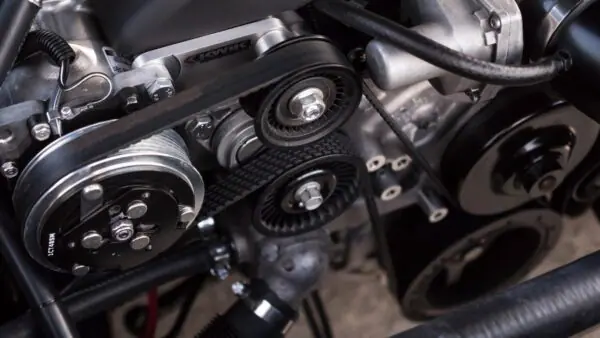It is below freezing outside, and you are late for work, but the car won’t start. When you look for the issue, everything appears to be in working order under the hood; the battery compartment is the only exception. You notice several telltale signs that your automobile battery needs to be replaced, including corroded terminals, an unpleasant odor, and even a misaligned battery casing. As a result, you are compelled to call a mechanic to replace it and mend all the broken parts.
The battery must be one of your car’s most critical components. You require it to start your car’s engine and power all the electrical features like the lights, radio, GPS, climate control, etc. A car battery should last for four years before needing to be replaced. The battery may, however, prematurely expire for various reasons, necessitating an earlier replacement. This brief guide lists eight indicators that it’s time to replace your car battery.
1. Slow engine start
Suppose it takes a while for your engine to start hammering. In that case, the battery may not maintain the same charge level as it formerly could and may even be progressively decomposing. Think about replacing it before it completely dies as soon as you can.
2. Headlights Dim
Suppose the headlights on your automobile are less brilliant than they once were. Your battery may be running low on power. Take it outside and have it recharged.
3. Foul Odor
f the issue continues, it can be a sign that your battery needs to be replaced because it is dying.
A telltale symptom that a battery is leaking gas and malfunctioning is when it emits an unpleasant odor akin to rotten eggs. Such a battery could be hazardous and harm or corrode other car parts. Has it changed right away?
4. Engine Rumbles but Is Unable to Start
If your car engine turns over, but it won’t start, the issue may be the car battery. Use jumper cables to jump-start your automobile and keep it going for around 30 minutes. The car should usually restart this time. The battery would need to be changed if it didn’t.
If you like to be more ‘hands-on’ with your vehicle, please browse our extensive library of manuals for your make and model: Repair Manuals

5. It Had Already Been Jumped A Lot
Cars with reasonably new batteries may require a jump start for various reasons. You should remember to switch off the car’s lights and start it after a long period of inactivity, or there is a starting issue. Nevertheless, the battery might only need to be changed if it jumped more than three times in a week.
Your car battery takes a lot of strain when you jump it, and if you do it repeatedly, it will get damaged more quickly and lose a life. Ironically, a damaged battery would require additional jump-starting to function and sustain more damage. Additionally, you run the risk of damaging your starter and alternator. By exchanging the old battery with a new one, you can spare yourself the trouble and the expense of repairs.
6. Uneven case
Your automobile battery’s case may bulge and shatter due to high temperatures and an accumulation of too much acidity. It’s time to get a new automobile battery if it is not rectangular with straight sides.
7. It’s already out of date.
As was already said, a car battery has a typical lifespan of 4 years. Well, it is done if you’ve maintained the battery longer and it’s still operating normally! Your car is nicely taken care of by you. The best course of action is to exercise caution and have the battery’s functioning checked regularly.
8. Too Much Corrosion is Forming Too Quickly
It is typical for corrosion to accumulate around the battery, even around the terminals. It occurs due to the outside factors that the battery is frequently exposed to. Often, you can utilize a dependable auto rust remover to stop it from spreading into the jointing components. It’s possible that the battery is broken and has to be replaced if you observe that the region around it is corroding excessively and too soon. Frequently, a leaky battery or one with insufficient interior fluid levels can cause significant corrosion.
Related Issues
What Elements Influence Battery Life?
There are many reasons why the battery begins to become sluggish. The leading causes include hot weather, a flawed charging system, and a buildup of corrosion and grime.
Car batteries have a shorter lifespan in hotter climes. It is due to the increased risk of interior structural damage from higher temperatures’ increased chemical activity. Additionally, the liquid’s acidity inside wet batteries rises in warmer temperatures due to the ease with which it evaporates.
A poor charging method can shorten the life of a car battery by prematurely draining it. The most frequent cause of risk is an alternator that isn’t working correctly, and either doesn’t output enough power or keeps the charging circuit going even when the car’s engine is off.
Finally, grime, grease, and corrosion can make the circuits around the battery-less effective and hinder current flow, putting additional strain on the battery and hastening its demise.
Is A New Battery Needed To Be Charged?
Now car batteries may be put into your vehicle right out of the box and are already entirely charged. Verify that the storm you bought came from a reputable manufacturer or merchant.










